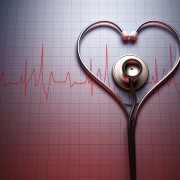ECMO an option for cardiac patients
Extracorporeal Membrane Oxygenation (ECMO) procedure can restore the functions of the heart and lungs in cases of cardiac and respiratory failure, but is not a one-size-fits-all approach

Dr Su Jang Wen recalls vividly the memory of a 33-year-old patient with pneumonia whose condition had been deemed hopeless in two different hospitals in Singapore. Once the patient’s family consulted Dr Su, he decided to perform an extracorporeal membrane oxygenation (ECMO) procedure as a last resort treatment.
In the following week the patient slowly recovered and was eventually able to walk home.
This is just one of several stories Dr Su shared with Global Health and Travel to illustrate the benefit ECMO can offer to those with life-threatening cardio-thoracic illnesses.
During the surgical procedure, a pump is used to circulate blood outside the body and through a machine that removes carbon dioxide first and then adds oxygen to the blood before pushing it back into the arteries. This takes over the vital functions performed by the heart and lungs thus allowing them to rest. Patients on ECMO can survive for weeks even if the cardiac muscle has stopped beating.
“Time is the best medicine,” says Dr Su. “If you give it time, a damaged heart gets less swollen and it starts to beat again.”
Who is a suitable candidate for ECMO?
In theory, any patient suffering heart or lung failure due to a variety of conditions, including heart attack and pneumonia can benefit from ECMO. In practice, a few doctors consider ECMO a viable option to resuscitate patients, says Dr Su.
“Doctors are often unaware of how good ECMO can be.”
He believes this is well demonstrated by the case of a friend of his in her thirties who was admitted to the hospital with a severe infection on a Friday night, before quickly deteriorating and dying on the Sunday. The team of doctors treating her ruled out the possibility of starting ECMO.
“Maybe ECMO wouldn’t have saved her, but that woman wasn’t given the best available chance,” he says.
Despite praising ECMO’s life-saving potential, Dr Su acknowledges it is tricky for doctors to make the right call because the procedure is not suitable for every patient and comes with a hefty cost.
“ECMO is a double-edged sword that can save patients but also bankrupt their families.”
The treatment often costs between SGD$10,000 and $15,000 per day and lasts for several weeks. Hence, it is crucial for doctors to select only those patients whose condition is potentially reversible so that they stand a chance of recovery.
For example, patients with a terminal illness, like late-stage cancer are not recommended to undergo ECMO because, on average, they would gain no more than one extra month of survival. In contrast, ECMO is indicated for people with a potentially reversible infection because it would provide time for the required medication to work.
A call for widespread adoption of ECMO
Dr Su is positive that many lives could be saved if hospitals adopted ECMO as a standard procedure to resuscitate patients in the wake of a collapse due to respiratory or cardiac arrest. This would keep patients’ organs in a stable condition while doctors come up with the best therapy to deliver. “Keep the patient alive first and then decide what’s the next step,” he says.
“The whole medical community has to understand that ECMO is a clinical intervention that could do miracles for patients.”
 Dr Su Jang Wen is a thoracic and cardiovascular surgeon at Gleneagles Hospital in Singapore. He was chief fellow of the Thoracic Surgery & Lung Transplantation Programme at the Cleveland Clinic in the U.S. He performs a full spectrum of cardiac and thoracic conditions and a variety of heart surgeries including coronary artery bypass grafts, mitral valve repair/replacements, aortic valve replacements and aortic dissection repairs.
Dr Su Jang Wen is a thoracic and cardiovascular surgeon at Gleneagles Hospital in Singapore. He was chief fellow of the Thoracic Surgery & Lung Transplantation Programme at the Cleveland Clinic in the U.S. He performs a full spectrum of cardiac and thoracic conditions and a variety of heart surgeries including coronary artery bypass grafts, mitral valve repair/replacements, aortic valve replacements and aortic dissection repairs.
Gleneagles Hospital Singapore
6A Napier Road, Singapore 258500
Tel: +65 6735 5000
www.gleneagles.com.sg
Thoracic & Cardiovascular Surgery Specialist
6 Napier Road #03-11
Gleneagles Medical Centre
Singapore 258499
Tel: +65 6473 3930
Related Articles
Why laughter may not be the best medicine
Dr Julian K.B. Tan, an interventional cardiologist at Mount Elizabeth Hospital, explains the how strong emotions may affect the heart
Read moreWhat is a heart attack?
Dr Paul Chiam discusses the importance of seeking treatment quickly in the case of a heart attack
Read moreLatest Articles
Medical Care
Clearing the Fog: Dispelling Common Diabetes Myths in Singapore
Uncover the truths and myths about diabetes with insights from Harmony Thyroid, Endocrinology and Diabetes Centre. Learn about prevention, diagnosis, and management strategies for diabetes in Singapore. Get expert guidance from Senior Consultant Endocrinologist Dr. Vikram Sonawane to navigate your diabetes journey effectively.
Read moreMedical Care
Achieving Swift Recovery: Enhanced Recovery (ERAS) Direct Anterior Approach Total Hip Replacement
Consider total hip replacement with Alps Orthopaedic Centre's ERAS Direct Anterior Approach for faster recovery and reduced hospital stays. Learn about Dr. Jerry Chen's expertise in Singapore.
Read moreMedical Care
Enhanced Recovery (ERAS) Total Knee Replacement
Discover how Alps Orthopaedic Centre's Enhanced Recovery After Surgery (ERAS) approach transforms total knee replacement into a day surgery, offering faster recovery, less pain, and reduced hospital bills. Learn about Dr. Jerry Chen's expertise and schedule your appointment in Singapore.
Read more